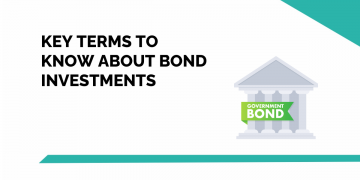When it comes to paying back debt, whether that be credit cards, mortgages or tax debt, there are a lot of things to keep in mind. If you’re not careful, you can make costly mistakes that can result in you searching for debt relief options. This will only delay your progress and perhaps even add to your total bill.
Here are 10 common mistakes to avoid when paying back debt.
1. Not making a budget
One of the most common mistakes debtors make is not creating or following a budget. This can make it difficult to keep track of expenses and income, making it more difficult to repay debt. Without a budget, debtors are more likely to underestimate their expenses and overlook potential savings opportunities. As a result, they may find themselves struggling to make ends meet each month. A budget can help debtors get a better handle on their finances and make debt repayment more manageable. By tracking income and expenses, borrowers can create a roadmap for getting out of debt. With careful planning and execution, a budget can be an invaluable tool for debt management.
2. Not prioritizing debt repayment
Another common mistake debtors make is failing to prioritize debt repayment. This can cause debt to snowball, making it more difficult to get out of debt. When borrowers fail to pay their debts on time, they may incur late fees and penalties that add to the balance owed. This can make it more difficult to catch up on payments and can lead to debtors falling behind. Debtors should make repaying debt a priority in their budget to get out of debt as quickly as possible.
3. Not negotiating with creditors
Some debtors are afraid to negotiate with creditors, but this can be a mistake. Creditors are often willing to work with borrowers to create a repayment plan that is affordable. debtors who are struggling to make payments should reach out to their creditors and explain the situation. Many creditors will be willing to work with debtors to create a payment plan that fits their budget. By negotiating with creditors, debtors can avoid late fees and penalties, and can make debt repayment more manageable.
4. Taking on new debt
One of the biggest mistakes debtors can make is taking on new debt while trying to repay existing debt. This can put debtors in a difficult financial situation and can make it more difficult to get out of debt. While it may be tempting to use credit cards or loans to pay for unexpected expenses, debtors should avoid taking on new debt. This will only add to the debt burden and make it more difficult to repay what is already owed.
5. Making minimum payments
Another mistake debtors make is only making minimum payments on their debts. While this may seem like a good way to save money, it can end up costing debtors more in the long run. When debtors only make minimum payments, they are paying mostly interest and very little of the actual debt. This can extend the repayment period and increase the total amount of debt owed. debtors should try to make payments that are above the minimum in order to pay off debt more quickly.
6. Using debt consolidation services
Debt consolidation services can be helpful for some debtors, but they are not a “quick fix” for debt problems. While debt consolidation can lower monthly payments and reduce the interest rate on debt, it does not actually reduce the amount of debt owed. debtors who use debt consolidation services will still owe the same amount of debt, but it may be spread out over a longer period. As a result, debtors may end up paying more in interest over the long term. debtors should carefully consider whether debt consolidation is right for them before using these services.
Read our Module on Start your Investment Journey at ELM School
7. Using debt settlement services
Like debt consolidation, debt settlement services can be helpful for some debtors. However, debt settlement comes with its own set of risks. When debtors use debt settlement services, they essentially agree to pay a lump sum that is less than the full amount owed. This can have a negative impact on credit scores, and debtors may still end up owing money to creditors. Debtors should carefully consider whether debt settlement is right for them before using these services.
8. Not checking their credit report
One mistake debtors often make is not checking their credit reports. This can be a bad idea for several reasons. First, debtors may not be aware of all the debt they owe. Second, debtors may not be aware of errors on their credit report that could impact their ability to get out of debt. Finally, debtors may not be aware of opportunities to improve their credit scores. debtors should check their credit reports regularly to make sure the information is accurate and to look for ways to improve their credit scores.
9. Filing for bankruptcy
Filing for bankruptcy should be a last resort for debtors. This is because bankruptcy can have a negative impact on credit scores and can make it more difficult to get out of debt. debtors who file for bankruptcy may also lose some of their assets, such as their home or car. Debtors should carefully consider whether bankruptcy is right for them before taking this step.
10. Not seeking help
One of the biggest mistakes debtors can make is not seeking help when they are in debt. There are many organizations and agencies that can help debtors get out of debt. By seeking help, debtors can get the information and resources they need to make a debt repayment plan that works for them. debtors should not be afraid to seek help when they are in debt. Help is available, and debtors can get out of debt if they are willing to work for it.
These are 10 of the most common mistakes debtors make when trying to repay their debt. By avoiding these mistakes, debtors can put themselves on the path to becoming debt-free.
Bottomline
We hope you found this blog informative and use it to its maximum potential in the practical world. Also, show some love by sharing this blog with your family and friends and helping us in our mission of spreading financial literacy.
Happy Investing!








